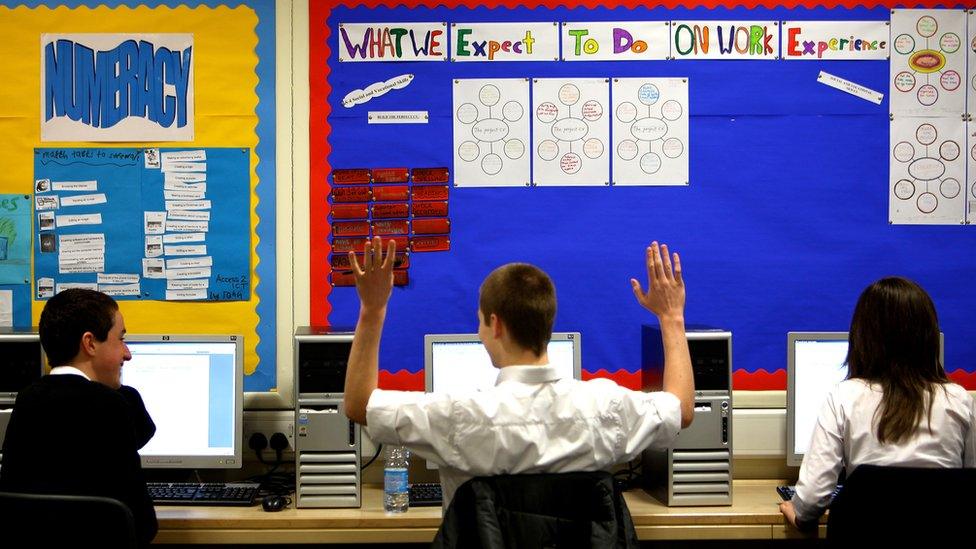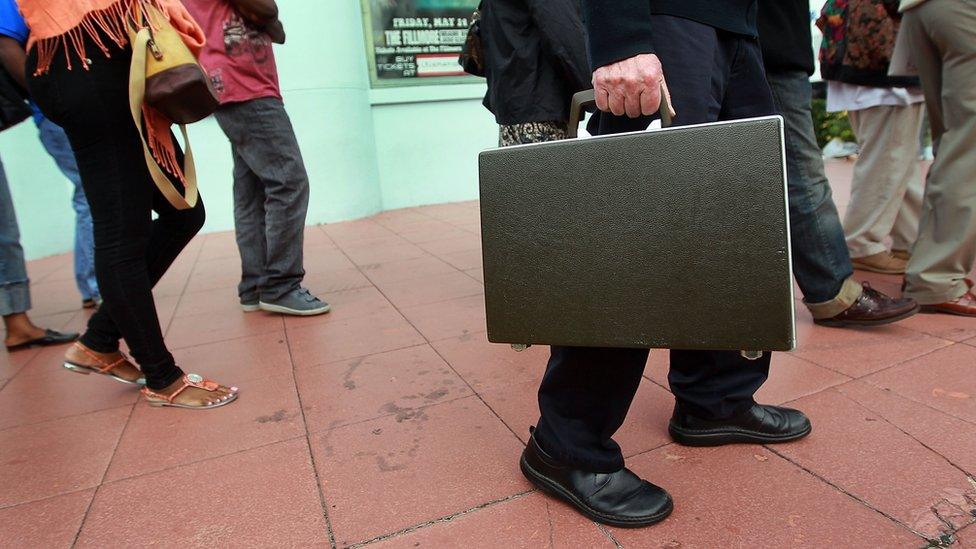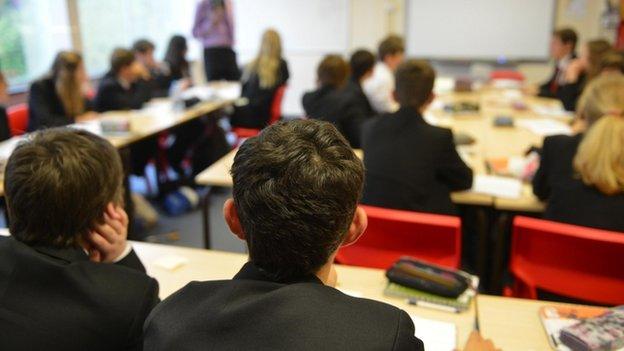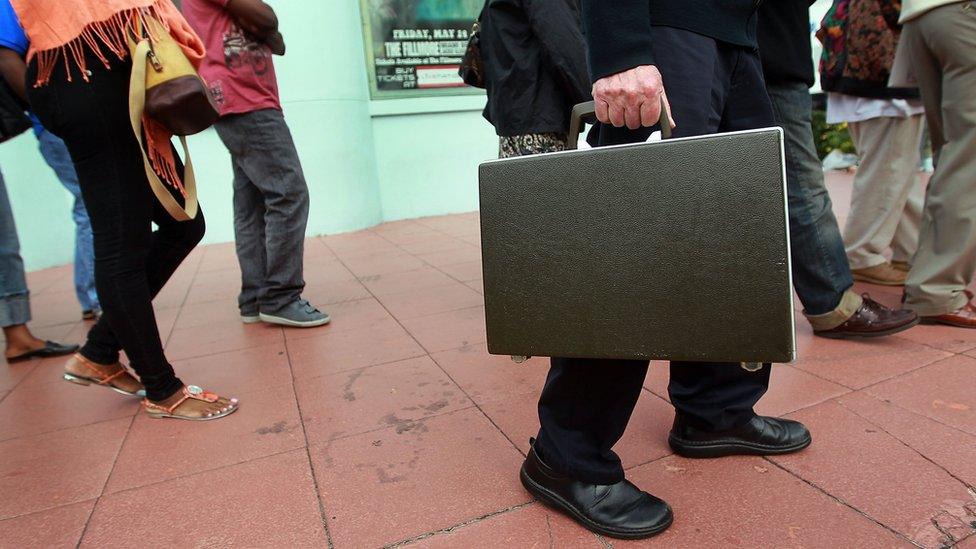Academy scrutiny confused, say MPs
- Published

Scrutiny of academies is confused, fragmented and lacking in transparency, say MPs
Scrutiny of academy schools is "confused, fragmented and lacking in transparency", say MPs in a report.
With more than 5,000 schools in England now academies, the system for monitoring them needs reassessment, says the Education Select Committee.
The role of Regional Schools Commissioners (RSCs), appointed to approve and monitor free schools and academies, is unclear, the MPs add.
The government promised "swift" action from commissioners to improve schools.
The growing number of academies outside council control meant increasing numbers of schools had lacked any local oversight until RSCs were appointed in 2014, says the report.
Committee chairman Neil Carmichael said the commissioners were doing a "necessary job" and were "a pragmatic response to a problem".
But the report says a fundamental reassessment of accountability and oversight for all schools will be needed and calls for improvements to the commissioners' transparency, accountability and working relationships.
"Without attention to these issues, RSCs will be seen as undemocratic and opaque," it warns.
For commissioners to be effective in delivering school improvement they must improve relationships with schools, communities, local authorities and Ofsted, says the report.
It adds that the structure of the eight regions is also a problem, with London divided into three.
London should have a single commissioner, say the MPs, who suggest Greater Manchester might also need a dedicated commissioner.
Mr Carmichael said the Department for Education had "for too long and under all parties... made changes to structures without setting out the big picture".
He added: "It's hardly surprising that most people have never heard of RSCs and even those who have are unclear about their role.
"RSCs are a product of the Department's 'acting first, thinking later' approach when it comes to big changes in the schools landscape.
"The DfE needs to take a long hard look at this picture once the number of academies stabilises and design a more coherent system for the future which ensures proper accountability for schools."

Parents no longer know who to turn to with education problems, say teachers' unions
Council leaders said they were concerned that commissioners lacked "the capacity and local knowledge to have oversight of such a large, diverse and remote range of schools".
Roy Perry, chairman of the Local Government Association's children and young people board, said councils had a proven record in school improvement with more than 80% of council run schools rated good or outstanding by Ofsted.
"The LGA opposes significant powers relating to education being given to an unelected body with parents and residents unable to hold it to account at the ballot box," said Mr Perry.
National Union of Teachers deputy general secretary, Kevin Courtney, described the committee's concerns as "decidedly worrying".
"This situation has arisen from the ill-thought out nature of government policy, which has created a fragmented and confusing school landscape where roles and responsibilities are unclear," he said.
"Parents in particular lose out in such a system with many having no idea about who is responsible for oversight of their school and to whom they should go if they have concerns."
A Department for Education spokesman said it would carefully consider the report's findings but believed the RSC system would be effective, with commissioners supported by locally-based "head teacher boards... as part of a school-led, self-improving system".
He added: "Regional Schools Commissioners are using their local knowledge to hold schools to account and thanks to that expertise, and the support of head teacher boards, they are able to take swift and targeted action to tackle underperformance rather than schools being left to stagnate under local authority control."
- Published19 January 2016

- Published13 October 2014

- Published29 September 2015
